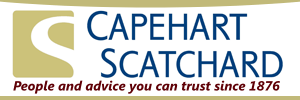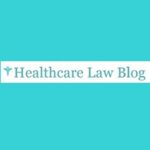OIG Opinion Finds No Kickbacks in Healthcare Industry Donations to Patient Assistance Charity
Late last week, the Office of the Inspector General of the United States Health and Human Services Administration (OIG) issued an auspicious advisory opinion concerning “a nonprofit, tax-exempt, charitable organization’s proposal to provide financial assistance to individuals with chronic diseases, including cancer, to assist with the costs of health insurance and drug and device therapies.” After determining that the charity and patients would be adequately insulated from the influence of the charity’s donors, the OIG determined that said arrangement would not result in liability under the Federal anti-kickback statute.
By way of background, the requestor of the advisory opinion was a 501(c)(3) charitable entity that sought to establish a “patient assistance program to provide financial assistance to individuals with cost-sharing obligations for prescription drugs or devices, health insurance premiums, incidental expenses (e.g., travel expenses, ongoing testing), or a combination thereof, associated with the treatment of various chronic diseases.” Patients would learn about said program through a variety of sources, which included their treating physicians, dispensing pharmacies, medical equipment distributors, patient support groups, as well as product manufacturers. The opinion provided, however, that before applying for assistance under the program, the patient must have selected their health care provider, practitioner, or supplier, and have a treatment regimen in place and while receiving assistance, the patient would remain free to change providers, practitioners, suppliers, drug or device therapies, or insurance plans.
Funding for the assistance program would be derived from donations solicited from a variety of sources, including pharmaceutical and device companies, specialty pharmacies, distributors, individuals, and corporations and all donations would be in the form of cash or cash equivalents. Donors may earmark their contributions to funds for patients suffering from a specific disease, but the donations would otherwise be unrestricted.
Given the potential for prohibited referrals, remuneration, and influence from donors, the OIG specifically noted several factors in which it relied in coming to its conclusion:
1) As the patient had previously selected their provider, practitioner, or supplier, the charity would not “refer patients to, recommend, or arrange for the use of any particular practitioner, provider, supplier, drug, device, or plan and that patients would have complete freedom of choice in such matters.”
2) The charity’s discretion to use the donations would be “absolute, independent, and autonomous” and “no donor, or affiliate of a donor, would exert any direct or indirect influence over the charity or charity’s patient assistance program” as a board fully independent from the donors would govern the charity.
3) The charity would not provide donors with any individual patient information (and patients would not be provided with donor information) or any data related to the identity, amount, or nature of drugs, devices, or services subsidized by the assistance program and reports to donors would not contain any information that would enable a donor to correlate the amount or frequency of its donations with the number or medical condition of patients who use its products or services or the volume of those products or services.
4) The charity “would define its disease funds in accordance with broadly defined disease states based on widely recognized clinical standards; and (ii) except to the extent that [charity] limits certain disease funds to the metastatic stage of certain cancers, its disease funds would not be defined by reference to specific symptoms, severity of symptoms, the method of administration of drugs, stages of a particular disease, type of drug or device treatment, or any other way of narrowing the definition of widely recognized disease states.”
In light of the insulation of the charity from donors, the OIG ultimately determined that the contributions donors would make to the charity would not reasonably be construed as payments to the charity to arrange for referrals.
The OIG additionally concluded that financial assistance provided by the charity to federal health care program beneficiaries presented a low abuse risk and was unlikely to influence any beneficiary’s selection of a particular provider, supplier, etc. as “eligibility determinations would be made in a consistent, uniform manner and would not be based, in whole or in part, on whether a patient’s provider, practitioner, or supplier has made contributions to [charity’s]’s patient assistance program.”
Ultimately, the OIG found that aforementioned payment assistance program, conducted by independent charities, should not raise anti-kickback concerns, even if the charities receive charitable contributions from donors whose products are supported by the subsidies provided in the program. The instant opinion by the OIG is an important recognition of the need for, and tacit support, of the endeavors by charities as well as their corporate donors — and both charities and donors alike must be cognizant that such patient assistance programs are viable — so long as the charity and patients remain insulated from the donors.
Questions regarding this article may be sent to Publications@Capehart.com.





Connect with Capehart Scatchard